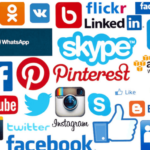Generally, when we think of apps, we think of social media platforms, games, or handy functional tools for our devices that fulfil an existing need.
This might make you think your business doesn’t need an app. After all, if you’ve got a website, surely that’s enough digital real estate to keep your customers happy.
In truth, you’re probably right – but that’s not the correct way of thinking about apps.
Here, we’ll dig a little deeper into how an app could help you grow your business, even if you don’t think you’ve got a current need for a permanent place on people’s phones.
Isn’t a website enough?
So, you’ve paid good money to have a great website developed – so why bother with an app? Especially if it means paying a specialist development company to create something bespoke?
Generally, we don’t need apps. Plenty of people used Facebook in browsers before it became an icon on your device – but apps aren’t about need, they’re about convenience, and with convenience comes a bunch of useful consumer habits that a website just won’t deliver by itself.
There’s a range of reasons you should consider building app development into your marketing budget. Here’s 5 with a little thinking about the benefit they can bring your company.
1. Improved visibility
When we ask people to use our websites, we’re actually asking for a fair amount of effort. They need to open a browser, enter your domain name correctly, wait for the page to load, then begin their interaction. Sure, the whole process takes around 10 seconds, but you’re relying on a lot of variables you have no control over.
- Are they going to get distracted by what’s currently open in their browser?
- Will they hit an app out of habit and forget about your site?
- Will they receive a notification in the 10 seconds it takes to enter the domain name?
- Could they mistype your domain and end up elsewhere?
Not end-of-the-world stuff – and unlikely to happen in big numbers, but why take the risk? An app is there, immediately delivering people to your brand, store, game, or experience. You’re already in front of your customer – and a single press takes them direct to your door. Remove potential hurdles and increase traffic.
The great thing is, simply having an app on a person’s device is shown to increase trust in your brand too. Consider it a digital billboard; all things being equal, customers will almost always use a brand they’ve heard of over a brand they haven’t. For many people, that recognition begins in app stores. Having an app makes you a serious player in the world or industry you’re engaging with. Take banking apps for instance; punch in ‘online bank’ to the app store and you’ll see the brand names you expect. Now, what if when you searched for an online bank you saw an app you’d never heard of? Chances are, you wouldn’t assume it was untoward – you’d assume that because of it’s position in the app store it’s actually an innovative challenger bank you weren’t aware of. This is the kind of trust you can leverage.
2. Direct marketing
As customers, we like the idea of being in control of who gets in touch with us and the channels those companies can use.
As with many digital privacy issues, the idea of being in control rarely translates into action – and for this reason, an app gives you a fairly unique and powerful way to get your customers’ attention.
Generally, 9 out of 10 app users will have their notifications switched on – so why not leverage push notifications to alert customers to your app functions? For instance, if you’re a florist, send offers the week before Valentine’s day. If you’re a restaurant, give people a snapshot of new menu items at quiet times of the month.
Push notifications are a sure-fire way to get your customers attention – and therefore action. Consider the points we touched on before – when you remove barriers to your marketing information, you increase conversions. It’s simple, but it’s a part of having an app that many people overlook.
3. Repeat business
One of the best ways to keep any customer engage with your brand is to somewhat ‘gamify’ your interactions. Truthfully, who really needs the free coffee if you’ve spent £25/$30 getting 10 loyalty stamps on your card? No one – but it’s a nice game to play, and, much like defeating an end-of-level boss; you get a sense of satisfaction when you get your reward.
This is something that apps do very well – especially because you can incentivise any type of behaviour – from log ins and shares to purchases and referrals. In fact, with a good analysis of how your app users engage with your app, it’s a useful tool to plug any holes in the journey that people take from installation to conversion.
Find a way to incentivise interaction – and you’ll have people coming back for more and more time after time.
4. Creating unique features
So, with these benefits in mind – what is your app going to do?
The answer can be far more diverse than your brand guidelines or business mission statement might ordinarily allow for. After all, most apps are advertising platforms, but they’re wrapped up with an incentive to view those adverts. No one in their right mind would download an app that continually shows them advertisements – but throw in a game or some status updates from your friends and suddenly you’re glued to it for hours with no conscious regard for the adverts that are being delivered.
The message here is fairly simple. Your brand and your product can play apparent ‘second-fiddle’ to another function – and in doing so, your key business function might even become more powerful or be shown to more people.
Could you make a game? Could you provide guides? Could you make a community? The possibilities are endless – the key is to find something that brings the right kind of people to your platform so you can engage them in your conversion process – whatever that might end with.







